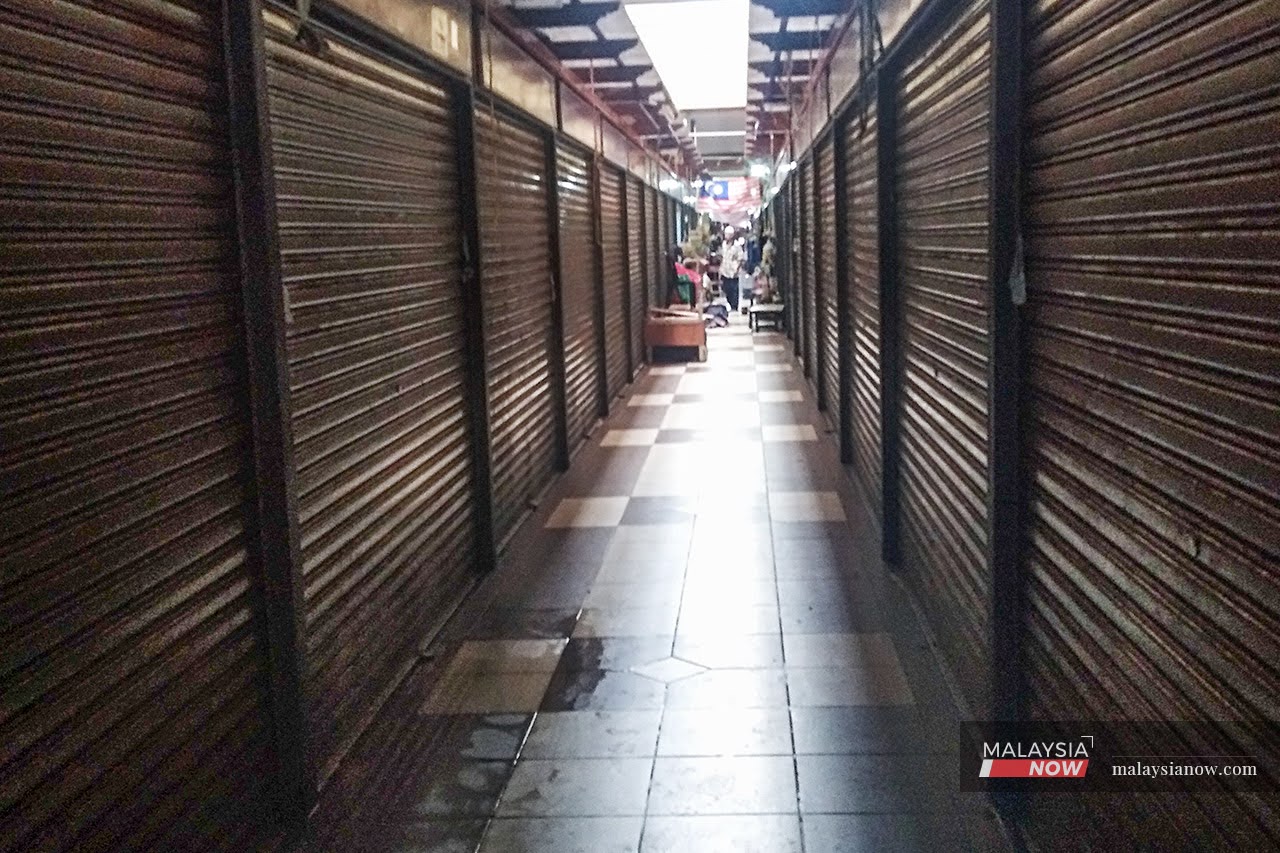In Kelantan border town, traders bid farewell to a year of suffering
A combination of movement restrictions, bad weather and the uncertain ringgit value has made 2020 a 'year of suffering' for these traders.
Just In
As December approaches, people in the east coast usually brace for the annual floods.
Just five years ago, Kelantan and Terengganu were hit by the worst floods in history which caused untold economic and social miseries.
This year, the floods are not the only one to blame.
In Rantau Panjang, a town in Kelantan which borders with Thailand, traders at one of Malaysia’s key shopping attractions find their livelihoods nearly wiped out by the various Covid-19 lockdowns imposed this year.
For years, traders at the tax-free zone have depended on the thousands of daily visitors at the busy border.
But with borders shut and restrictions on businesses, coupled with the economic uncertainty, traders are lamenting their losses for this “year of suffering”.
“We have all been tested, right until the end of the year.”
Rukinah Mail, 59, said sales began to pick up after Hari Raya sometime the middle of the year, when locals came crowding in.
“But just as we were breathing a sigh of relief, the conditional movement control order was imposed,” she said, referring to the restriction on movements reinstated across most of the country in the wake of a spike in Covid-19 cases.
This put paid to interstate travel, which was only allowed to resume recently on Dec 7.
“The rainy season has also arrived, and floods could happen at any time. We have all been tested, right until the end of the year,” Rukinah told MalaysiaNow at her stall in Rantau Panjang, in front of the three-storey Fatimah Bazaar.
The building was constructed by the Kelantan government after the original bazaar site was razed by fire several years ago.
Rukinah has been selling household goods such as pots, plates and bowls, as well as mats, bedsheets and dolls since the 1990s, but the future of her small shop is now up in the air.
Come December, she used to rake in six-figure profits but this year she is far short of her sales target and was forced to let go two of her workers.
Across the way, Syukri who sells children’s clothes said he has over RM15,000 worth of stock of which he has little hope of disposing.
It’s difficult for him to sell the stock that came in earlier this year as fashion trends have changed since then.
“As long as I can pay my rent, it’s okay. If I have any extra money I will try and plan for another business.”
“I would like to just auction it off for cheap,” he told MalaysiaNow. “Hand it over to other traders based on how many sacks of clothes they want. I advertised it on Facebook asking for only RM10,000, but no one took up my offer.
“It’s old stock,” he added. “We’re heading into 2021, no one wants to sell clothes from 2020 anymore.”
Syukri owes about RM4,000 in rental for two shop units. Monthly rental for one unit is RM450.
“I want to sell everything,” he said, referring to his stock.
“As long as I can pay my rent, it’s okay. If I have any extra money I will try and plan for another business.”
Rantau Panjang is located about 40km from Kota Bharu, adjacent to the town of Golok on the Thai border.
Its duty-free status, obtained in 2002, had made it a hot spot for tourists every year – except this year.
Less than 30km away, the Pengkalan Kubor duty-free zone operates on the same concept and price range. Both locations are under an hour’s drive from the state capital Kota Bharu.
Today, Fatimah Bazaar is deserted, with many shops shuttered and unoccupied.

Traders said the second and third levels of the bazaar are deserted, filled with rubbish and thick with dust.
“The rental imposed by the council is steep and not in line with the units’ location on the top floor. Who wants to go up there when there are many shops at the ground level?” Kak La, who sells gold-plated items, told MalaysiaNow.
Syukri meanwhile said the shopping haven is now frequented by locals looking to buy snacks from stalls at the side of the road.
“It makes me sad, but I have to laugh as well, when in the morning I come to open my shop and there are cars and motorcycles parked in front of the stalls.
“It appears that people are coming to jog here because they can’t go anywhere else.”
The Rantau Panjang Traders’ Association said the number of tourists to the area has been on the decline.
However, its president Ramli Abdullah said the traders had accepted the situation as the Covid-19 pandemic has affected everyone at every level of society.
He told MalaysiaNow that while 2020 might end in sadness, hope remained for the year ahead.
“We will think of a way to make sure we can continue to survive and to operate as normal,” he said.
“That’s our job here, every day – to run our business and not give up.”
Subscribe to our newsletter
To be updated with all the latest news and analyses daily.



